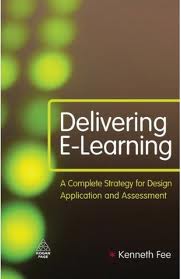Sponsored Links
Writing Efficient Modules for Online Education Program
© 2013 by Jensen DG. Mañebog
Some Objectives:
1. To teach about module writing
2. To present a module design that is compatible with online education program
3. To introduce an effective module format that advocates e-learning and blended learning
Definitions:

Module (in education) refers to a relatively brief course of study that forms part of an academic subject, course or program, e.g. an element that forms part of a syllabus
Modular design (in education) is a methodology that subdivides a course into smaller interdependent* but interrelated parts (modules) that can be used ideally in various subjects to serve multiple purposes.
Some characteristics of a good module:
1. versatile/multifunctional* (e.g. ‘classic’ topics like UBD, OBTL, Decentralization, and the like)
2. interesting
3. short (if possible)
4. plagiarism-free (references must be properly cited and documented)
5. free from any copyright infringement
A sample of education module outline:
1. Title
2. Module Description
3. Target audience
e.g. Novice, Intermediate, Expert, Professional, etc.
4. Presentation
5. Resources
Our suggested format:
1. Title
2. Objectives
3. Topics
4. Lecture
5. Discussions
6. Activities
7. Self-tests
8. Deadline, Reminders, and References
1. Title
 To a certain degree, we can deviate from traditional style to make our lecture interesting (e.g. “UBD: We’re still understanding the design;” “I’m Not OK with K+12”)
To a certain degree, we can deviate from traditional style to make our lecture interesting (e.g. “UBD: We’re still understanding the design;” “I’m Not OK with K+12”)
2. Objectives
A set of specific ‘objectives’ allows readers to anticipate the concepts, principles or skills they will learn in the module.
Suggestion:
Make it student-centered and conversational.
e.g. “After completing this module, you are expected to be able to:
- create a competent academic module …"
3. Topics
A list of particular ‘topics’ enumerates the pertinent subject matters and issues discussed in the lecture. (Objectives and topics provide a bird’s eye view of the lecture.)
e.g. In the lecture about ‘Organism’, we may have the following as ‘topics’: a. Cell, b. Tissue, c. Organ, d. System
4. Lecture
 The lecture proper presents and discusses in details the lessons/topics.
The lecture proper presents and discusses in details the lessons/topics.
Suggestions:
a. Make the lecture well written. We can somewhat adopt the style of blogs* and feature articles.
b. To become fascinating, make the lecture conversational.
e.g. “… In view of all of these, I guess you would agree that if Rizal were alive today, he would be an addict Facebook user (laughs!).”
c. If the lecture is long, use many interesting subtitles—i.e. captivating phrases or sentences.
e.g. “Darwin himself doubted evolution”
d. To avoid or minimize confusion, use proper outlining (I, A, 1, a, i ... or 1, 1.1, 1.1.2 … ).
e. We may include ‘analysis’ section. ‘Analysis’ refers to our personal critical evaluation of the concepts in the lecture
e.g. “… I personally believe that UBD is just a name given to the method that has been used for long by many sensible and critical-minded teachers …”.
 f. We may also incorporate ‘application.’ That is, we may state the significance of the topics or how they can be intelligently used in various undertakings.
f. We may also incorporate ‘application.’ That is, we may state the significance of the topics or how they can be intelligently used in various undertakings.
e.g. On induction and deduction, we may say, “Both are used in everyday conversations and in scientific reasoning. They are effective in establishing general laws, drawing conclusions about a population, predicting the occurrence of a future event based observations of similar past events, and drawing conclusions about causes of an illness based on observations of symptoms."
5. Discussions
This section includes the questions and guide topics we professors may use during classroom lectures and/or for recitation. (It’s like involving the online students in classroom discussion/recitation.)
e.g. On the topic ‘Organism”:
a. “Relate cell and tissue.”
b. “Differentiate organ and system.”
c. “Define and exemplify organism.”
6. Activities
This part provides students with means by which they can further internalize the topic or experience how the concepts can be applied. (This can also serve as pre-lecture or post-lecture assignment.)

Some samples:
a. Topic: Aristotle’s ethical theory
Activity: “Make a three-paragraph essay entitled, ‘Aristotle vs. Plato: The Better Moral Philosopher’”.
- Notice that this activity requires the students to review the past lesson on ‘Plato’s ethics’ (retroactive).
b. Topic: EDCOM (Congressional Commission on Education, early 1990's)
Activity: “Make a two-page research paper comparing the EDCOM report and the PCER (Presidential Commission on Educational Reform) findings.”
- Note that this activity calls for a research about a future lesson—Estrada’s PCER (advanced).
c. Topic: Education in the Philippines
Activity: “Go online to www.OurHappySchool.com. Through its search engine (upper right section), look for the lecture, ‘Education of the Mind, Heart, and Hands: Challenges to the Changing Educational System.’ Read the article. In the comment section below the article, write your two-sentence reaction.”
- This activity advocates e-learning (and blended learning), particularly the use of academic blog sites and social media (Facebook) in teaching.
d. Topic: Social Problems (Family)
 Activity: “Go online to www.OurHappySchool.com. Through its search engine (upper right section), look for the post, ‘DIVORCE BILL: Online Survey and Open Friendly Debate.’ Read the short article. Join in the online friendly debate by writing your argument/s in the comment section and by courteously commenting on other viewers’ remarks.”
Activity: “Go online to www.OurHappySchool.com. Through its search engine (upper right section), look for the post, ‘DIVORCE BILL: Online Survey and Open Friendly Debate.’ Read the short article. Join in the online friendly debate by writing your argument/s in the comment section and by courteously commenting on other viewers’ remarks.”
- This activity promotes the development of critical and analytical thinking in a ‘technological’ way
e. Topic: Physical Education—Chess
Activity: “Go online to www.OurHappySchool.com. Through its search engine (upper right section), look for the article, ‘How to Play Chess: Chess Games for Beginners.’ Read the text and watch the video. Leave your short reaction on the comment section.”
- This activity promotes the use of a different medium (video) in teaching.
f. This is applicable to any topic/subject.
Activity: “Sponsoring an Intellectual Discussion on Facebook”
i. Think of a ‘topic for discussion’ that is related to our subject. (Topics that are offensive, indecent, discriminatory, and the like are strictly prohibited.)
 ii. Open your own Facebook account. Look for and ‘Like’ the OurHappySchool.com Facebook fan page.
ii. Open your own Facebook account. Look for and ‘Like’ the OurHappySchool.com Facebook fan page.
iii. Write your ‘topic for discussion’ on its ‘wall/timeline’ by strictly following this template (which you may copy, paste, and edit):
Pls. comment on this, “(YOUR TOPIC FOR DISCUSSION.) WHY?” Pls. “LIKE” first this OurHappySchool.com FB page so that your comment would be COUNTED http://www.facebook.com/pages/OurHappySchoolcom/121033777923826
Example:
Pls. comment on this, “WHAT SHOULD ONE DO TO EASILY MOVE ON AFTER BREAK-UP? WHY?” Pls. “LIKE” first this OurHappySchool.com FB page so that your comment would be COUNTED http://www.facebook.com/pages/OurHappySchoolcom/121033777923826
Another example:
Pls. comment on this, “ALIN ANG NAUNA: ITLOG O MANOK? BAKIT?” Pls. “LIKE” first this OurHappySchool.com FB page so that your comment would be COUNTED http://www.facebook.com/pages/OurHappySchoolcom/121033777923826
iv. Ask at least 20 friends from outside your school/country (through ‘private messaging’, etc.) to participate in your sponsored friendly discussion. (Also highlight and promote your post through various ways that your other FB friends may know about it.)
v. After acquiring a minimum of 20 various friends’ comments, answer the following (to be submitted to your professor):
 -Who provided the best comment on your topic? Why is his/her answer the best?
-Who provided the best comment on your topic? Why is his/her answer the best?
-Who provided the worst comment on your topic? Why is his/her answer the worst?
- Note that this activity allows knowing the opinions of people from other cultures, encourages social (online) interaction, and develops logical thinking. (Students may be given a whole month to complete this activity.)
7. Self-tests
This refers to the ‘evaluation’ which measures how well the students comprehend the lecture. For students under the online education program, evaluation is basically an ‘open-note exam,’ so this portion is just to somewhat ‘compel’ them to read the whole lecture.
- Commonly used types of exam are ‘true or false’ (for comprehension), ‘identification/fill in the blank’, ‘multiple choice/matching type’, and essay.
8. Deadline, Reminders, and References
 Example of a reminder: Write your responses to ‘Discussions’, ‘Activities’, and ‘Self-test’ in a Microsoft Word file and send them to your professor’s e-mail address.
Example of a reminder: Write your responses to ‘Discussions’, ‘Activities’, and ‘Self-test’ in a Microsoft Word file and send them to your professor’s e-mail address.
Sample module:
Some advantages of this module format:
1. The module design exhibits a holistic learning package.
2. The module format is ‘self-taught’ in which students can advance at their own pace.
3. It is compatible with ‘asynchronous communication’, that is, it allows us (professors) to engage in the exchange of ideas without the dependency of students’ involvement at the same time. On their part, the students are given the chance to work anywhere and anytime (so long as they beat the deadline).
4. It involves multimedia and allows the information to come in various forms (text, image, animation, streaming video and audio, etc.)
 5. If you are writing a book (esp. a textbook), you can adopt the features of this module design to make the book academically competent. Taking up our suggested ‘activities’ can make your book online-education compatible* and e-learning advocate*.
5. If you are writing a book (esp. a textbook), you can adopt the features of this module design to make the book academically competent. Taking up our suggested ‘activities’ can make your book online-education compatible* and e-learning advocate*.
About ‘OurHappySchool.com’:
1. It is a free alternative academic and entertainment reference site.
2. Compared to other reference sites, information in OurHappySchool.com were all verified, screened, and filtered by the editors/administrators.
3. Aside from lectures, OurHappySchool.com contains entries such as poems, blogs, essays, feature articles, videos, online surveys and debates, and the like.
4. OurHappySchool.com accepts viewers’ (students, teachers, etc.) contributions. (In looking for articles, just enter the ‘key word’ [e.g. education] in the site’s search engine [upper right section]).

5. In making your module or book e-learning and online-education compatible, it’s ‘safe’ to refer to articles in OurHappySchool.com (as your ‘activities’ or ‘further readings’) because the site does NOT publish anything that is indecent, offensive, discriminatory, derogatory, and the like. (For more info about the site, click here ‘About’)
Related articles:
How to cite this article:
Mañebog, Jensen DG.“Writing Efficient Modules for Online Education Program.”OurHappyschool.com. OurHappySchool, 25 Feb. 2013. Web. (Date retrieved)
How to access this article:
Go online to www.OurHappySchool.com. Through its search engine (upper right section), look for the article “Writing Efficient Modules for Online Education Program.”




